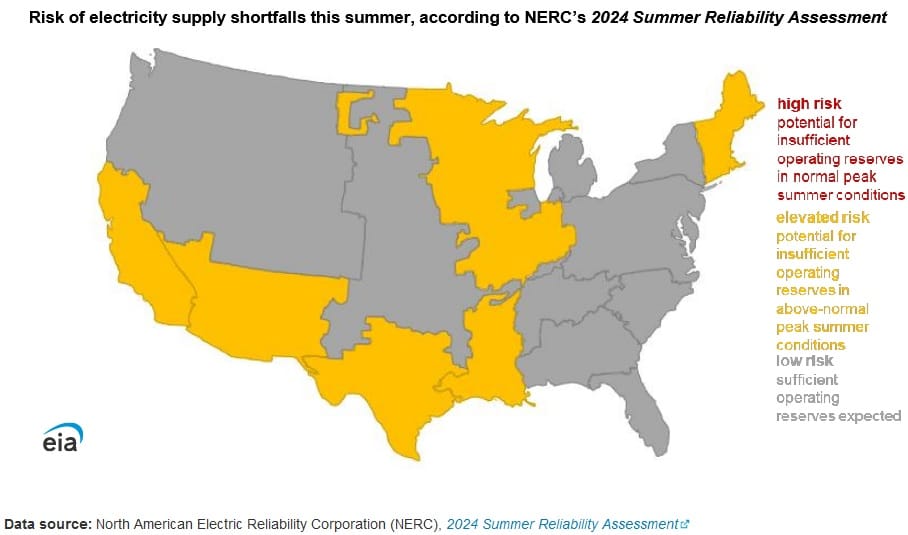Some U.S. Regions at Risk of Power Shortages in Extreme Summer Conditions: NERC

Electricity supply shortage could occur if demand during peak periods is higher than projected or if electricity supply produced is lower than anticipated, according to the North American Electric Reliability Corporations (NERC) 2024 Summer Reliability Assessment. The U.S. Energy Information Administration issued an analysis on June 10, highlighting the findings of the assessment.
The continental U.S. is expected to have adequate power resources this year under normal summer demand conditions. According to the NERC, no region in the U.S. is considered high risk this summer. High risk is defined in the report as an area that is at risk of outages during normal summer circumstances.
Peak electricity demand in most areas is directly influenced by temperature. Power demand usually rises when temperatures increase, as more households and businesses utilize more air conditioning. Above seasonal normal temperatures also impact the reliability of the electricity grid, since the risk of power plant outages increase and heat-related issues negatively impact output.
The NERC assessment also underscores concerns about having adequate resources to meet peak demand due the increase in baseload generation retirements and the replacement of other power plants with intermittent resources, such as solar and wind that have less stable generation pattern.
Moreover, widespread heatwaves negatively impact the movement of electricity across the electricity network. Transmission is usually impacted due to the risk of overheating, insufficient capacity and higher dangers of natural disasters such as wildfires. During extreme heat conditions, wind and solar generation become less reliable and electricity grids across the U.S. have to rely more on fossil fuels as an input for electricity generation. As a result, during extreme summer conditions gas usage usually increases.
California, Texas, New England, the Southwest and the Midwest are the regions evaluated by NERC who are at a higher risk of power supply shortages during this summer. This means these regions could face electricity shortages during periods of higher demand, amid extreme summer conditions.
EnerKnol Pulses like this one are powered by the EnerKnol Platform—the first comprehensive database for real-time energy policy tracking. Sign up for a free trial below for access to key regulatory data and deep industry insights across the energy spectrum.
ACCESS FREE TRIAL